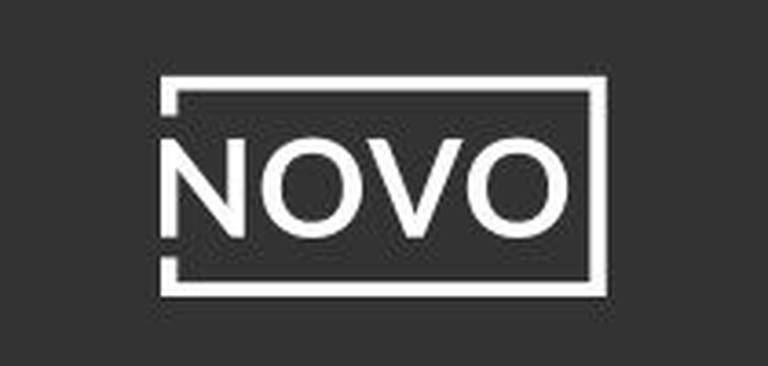For America’s more than 30 million small business owners and the 58 million workers they employ--approximately 47.3% of the U.S. workforce--the COVID-19 crisis has added a distinct tone of despair to the existing climate of economic uncertainty.
Now numerous states are joining the federal government in providing tangible support for businesses in the form of grants, loans, and technical support. Here’s your guide for getting the help your business needs to weather the storm.
Coronavirus and Small Businesses Fast Facts
- 96% of the owners of small businesses say they have experienced an economic impact from the Coronavirus pandemic, with 75% stating sales have dropped.
- 51% believe that their companies will fail within three months because of confidence losses due to the COVID-19.
- Only 13% expressed confidence that their plans to stay in business will succeed.
Source: Goldman Sachs, The 10,000 Small Businesses Survey, March 2020.
Grants, Loans, and Advocacy: Heres Where to Find Help
The U.S. Small Business Administration (SBA) is extending its services and offering new loans and grants programs in response to the COVID-19 pandemic’s impact on American businesses.
The Coronavirus Aid, Relief, and Economic Security (CARES) Act has created a new program to be orchestrated through the SBA--the Paycheck Protection Program.
(PPP) The Paycheck Protection Program offers no-fee, forgivable loans of up to $10 million for employers to retain workers at full salary and cover related expenses. Up to 8 weeks of payroll, mortgage interest, rent, and utility bills can be forgiven under certain criteria. Loan payments on principal and interest for loans that applicants do not apply to have forgiven will be deferred for six months to a year.
You may apply if your business was impacted by the pandemic beginning on February 15th, 2020, allowing you to rehire employees who may have been laid off because of a dip in sales or related economic impact. It is recommended that you apply for the loan by May 5th to benefit from the full eight weeks of loan proceeds.
The program is slated to end on June 30th of this year. Applications from sole proprietorships and small businesses are accepted from April 3rd, 2020, with self-employed and independent contractor applications accepted starting April 10th, 2020.
The U.S. Small Business Administration Economic Injury Disaster Loan
The SBA is offering an expanded working capital loan program as a part of the CARE Act. Loans of up to $2 million with interest rates of 3.75% for small businesses and 2.75% for nonprofits will be made available to businesses of most sizes.
Payments may be deferred for up to four years, and applicants do not need to provide a personal guarantee on loans under $200,000.
Emergency grant of $10,000 to SBA Economic Injury Disaster Loan applicants
If for some reason you are denied the loan, you can apply for an emergency grant of $10,000 which can cover operating expenses.
Visit The U.S. Small Business Administration (SBA) coronavirus resource page to learn how to apply for all SBA programs.
State and Local Coronavirus Small Business Assistance
Each state has its own initiative to help small businesses harmed by the economic effects of COVID-19 pandemic. Use this handy list from The National Governors Association to locate your state governor’s official websites with information on new small business relief programs. Here are a few more examples:
California
San Francisco COVID-19 Small Business Resiliency Fund
If your business has less than $2.5 million in gross income and you lost 25% or more of your revenue due to the pandemic, you can apply for $10,000 in emergency funding to cover payroll and other costs.
Complete an application form and email it to investsf@sfgov.org. You will have to document your losses and previous income.
City of Los Angeles Small Business Emergency Microloan Program
If your business is located in Los Angeles and you provide low-income jobs to the local community, you can apply for an emergency microloan of $5,000 to $20,000 for working capital.
Your individual credit history is a factor in loan approval, and if you own more than 20% of the business you will have to provide a personal guarantee as well.
Apply online. Be prepared to supply your most recent tax returns and bank statements.
Florida
Florida Small Business Emergency Bridge Loan Program
Loans ranging from $50,000 to $100,000 are available to small businesses with two to 50 employees. You must be able to provide evidence of economic impact from the Coronavirus pandemic.
Submit an application by May 8th, 2020. You will have to provide documentation of economic hardship.
Illinois
Chicago Small Business Resiliency Fund
From March 31st, businesses with less than $3 million in revenue and fewer than 50 employees can apply for low-interest loans of up to $50,000 if they have experienced a 25% or more loss in earnings due to the pandemic.
Applications are now closed.
Michigan
Michigan Small Business Relief Program
The State of Michigan is planning to offer grants of up to $10,000 to small businesses that are undergoing financial hardship because of COVID-19s market impact.
Loans of $50,000 to $200,000 will be made available with interest rates of 0.25%. Companies must have fewer than 50 employees to qualify for grants, and fewer than 100 to apply for loans. Credit requirements are lenient.
Learn more at the Michigan Economic Development Corporation website.
New York
New York is an epicenter of the pandemic and has numerous programs available for entrepreneurs, small businesses, and microenterprises. Refer to New York City’s Coronavirus resource page for small businesses for more information. Below are two programs from the New York City Small Business Resources page.
NYC Small Business Continuity Loan Fund
Businesses with fewer than 100 employees who have seen sales decreases of 25% or more will be eligible to apply for zero-interest loans of up to $75,000 to help ensure business continuity.
Eligibility Criteria for the NYC Small Business Continuity Loan Fund
Businesses must:
- Be located within the five boroughs of New York City
- Demonstrate that the COVID-19 outbreak caused at least a 25% decrease in revenue
- Employ 99 employees or fewer in total across all locations
- Demonstrate the ability to repay the loan
- Have no outstanding tax liens or legal judgments*
NYC Employee Retention Grant Program
The City is offering small businesses with fewer than five employees a grant to cover 40% of payroll costs for two months to help retain employees.
Eligibility Criteria for the NYC Employee Retention Grant Program
Businesses, including nonprofits, must:
- Be located within the five boroughs of New York City
- Demonstrate that the COVID-19 outbreak caused at least a 25% decrease in revenue
- Employ 1-4 employees in total across all locations
- Have been in operation for at least six months
- Have no outstanding tax liens or legal judgments
Don’t see your state? Don’t worry. Start at this page to find the right grant or loan for you from the SBA.

One last move you can make to cut costs is to choose a bank with very little to zero fees. Bank Novo is one of our favorites for small businesses. While you won’t find loans or other traditional banking products, Bank Novo offers a free online checking account with no monthly or hidden fees. All you need is $50 to open an account, and after that, there’s no minimum balance. Read our full review to see why we think this is an excellent option for small business owners and freelancers.
Related:








